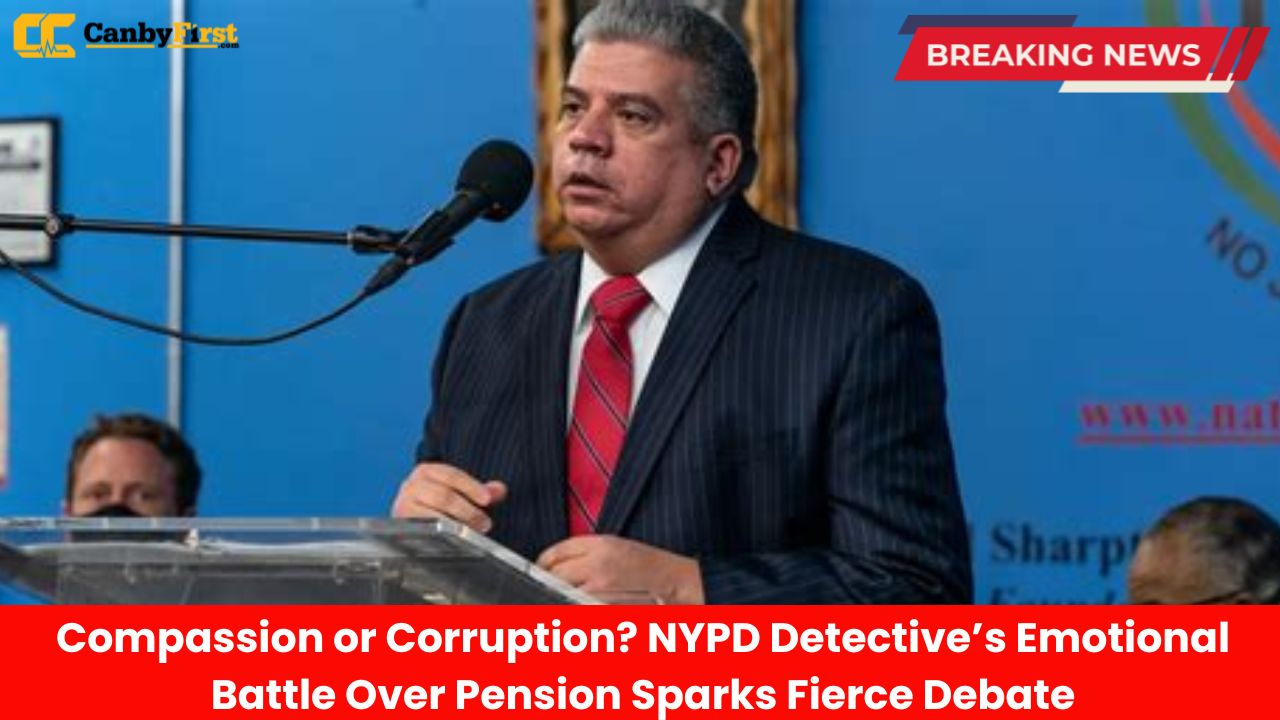New York, US: A heated debate has erupted across New York’s law enforcement community after an NYPD detective accused of misusing departmental time and resources during remote work now fights to keep her pension. The case, dubbed “Compassion’s Price” by commentators, highlights the sensitive balance between professional duty and personal responsibility.
The Allegation
Detective Maria Sanchez, a 22-year veteran of the New York Police Department, has been under administrative review since allegations surfaced that she received full pay while working remotely from her family home in upstate New York. Internal investigators claim she spent significant hours away from official duties caring for her terminally ill mother.
Sources within the department allege that during an extended period of remote work approved under pandemic-era flexibility rules, Sanchez submitted time logs inconsistent with her casework output. The department has categorized the alleged misconduct as “unearned compensation,” though no criminal charges have been filed.
Also Read
A Question of Compassion
Supporters of Sanchez argue that the NYPD’s stance disregards the humanity behind her circumstances. Many retired officers and union officials have described her actions not as theft but as an act of profound compassion in a time of crisis.
“She wasn’t running away from work,” said one retired detective familiar with the situation. “She was balancing her badge with her family’s pain. That’s not criminal—it’s human.”
Public sentiment on social media has sharply divided, with some seeing the case as emblematic of the rigidity of bureaucratic systems. Others view it as a troubling precedent that threatens accountability within public service institutions.
Department Response
NYPD spokespersons maintain that while the department acknowledges the personal hardship Sanchez endured, its investigation must ensure fairness to taxpayers and compliance with internal regulations.
“Every officer, regardless of rank or personal circumstance, is held to the same standard of integrity,” said an NYPD representative in a statement this week. “Detective Sanchez’s case is being reviewed with full consideration of both her service record and the seriousness of the allegations.”
The representative further emphasized that the issue concerns administrative ethics and does not reflect on Sanchez’s character or investigative record.
The Pension Battle
At the heart of the dispute lies Sanchez’s request for a full retirement pension, a benefit now in jeopardy. Under departmental policy, officers found guilty of administrative misconduct may face reductions or forfeiture of retirement benefits.
Her legal counsel has called the proceedings “punitive and disproportionate,” noting her exemplary service record and multiple commendations over two decades. A formal hearing before the city’s pension review board is expected in the coming months.
Union leaders from the Detectives’ Endowment Association have already vowed to stand by Sanchez, warning that her case could set a dangerous precedent for how compassionate circumstances are treated under departmental policy.
Broader Implications
The controversy comes at a time when New York City agencies continue reassessing flexible work arrangements introduced during the pandemic. While remote work offered relief for many officers juggling family responsibilities, it also exposed gaps in supervision and accountability across multiple departments.
Workplace analysts say the case exposes an unresolved tension between strict public-sector oversight and evolving definitions of duty and presence in the modern era.
“The line between personal care and official neglect becomes blurred when the rules don’t evolve with reality,” said one employment ethics expert. “Public institutions must strike a balance between empathy and enforcement.”
A Community Divided
On talk shows, community boards, and online forums, debate continues to swirl. Some residents, particularly those who benefited from compassionate policing programs initiated by Sanchez, have organized letters of support highlighting her dedication to community welfare and victims’ advocacy.
Others remain critical, arguing that personal struggles, however severe, cannot excuse misuse of public funds or breach of department timekeeping rules. They stress that accountability is the cornerstone of public trust, especially in law enforcement.
Human Cost of Duty
For Sanchez, once celebrated as a model detective known for solving complex domestic abuse cases, the situation has become deeply personal. Friends say she has spent months in emotional turmoil, torn between defending her integrity and grieving her mother’s passing.
Legal experts suggest the outcome could serve as a benchmark for future cases where compassion collides with regulation. Many believe the NYPD and city administrators are walking a tightrope—balancing fairness with the fear of opening floodgates for similar appeals.
The Road Ahead
As hearings approach, public attention shows no sign of fading. Advocacy groups have called for broader reforms in how departments handle officers with family emergencies and medical caretaking responsibilities. Some lawmakers have even proposed revisiting employment laws to include clearer provisions for compassionate leave in essential service roles.
Whether Detective Sanchez keeps her pension or not, her story has already ignited an important conversation about what compassion costs—and who decides when empathy becomes misconduct.
Conclusion
In a city that prides itself on justice and resilience, the saga of Detective Maria Sanchez raises difficult questions about morality, mercy, and accountability. As New York awaits a final decision, the debate over compassion’s true price continues to ripple far beyond the NYPD’s walls.











